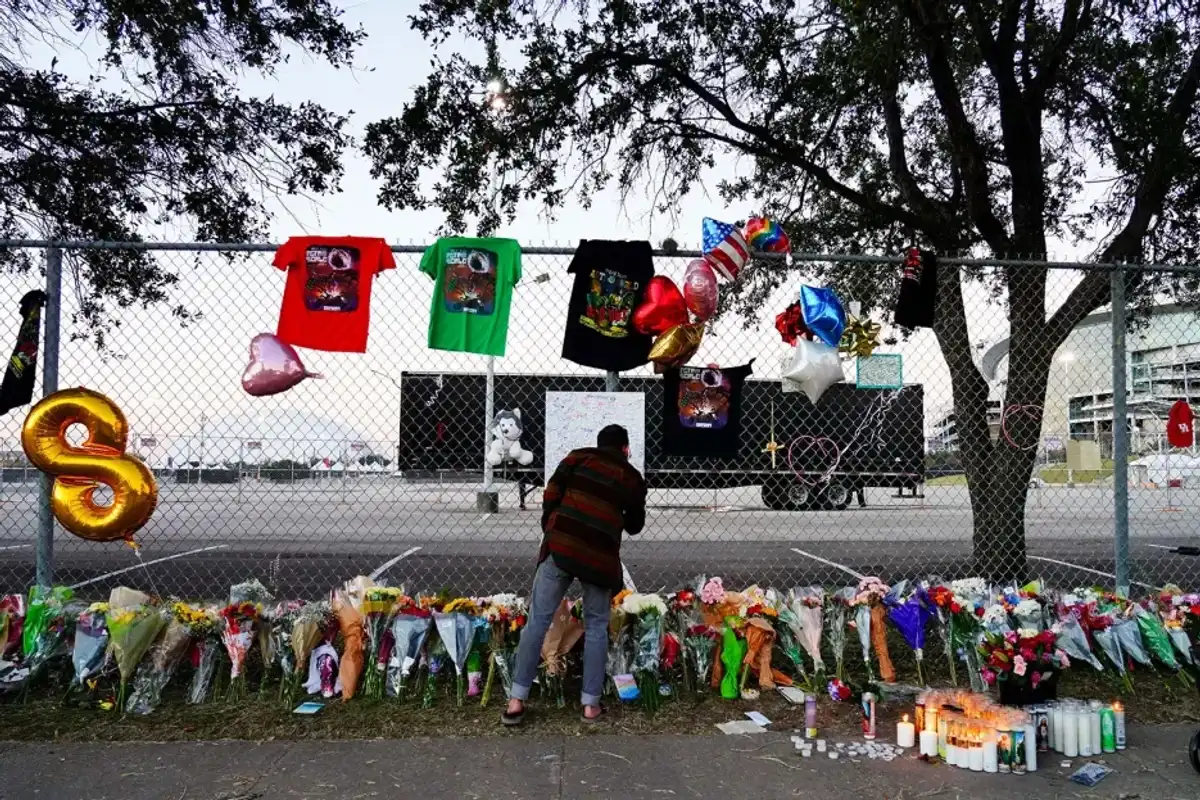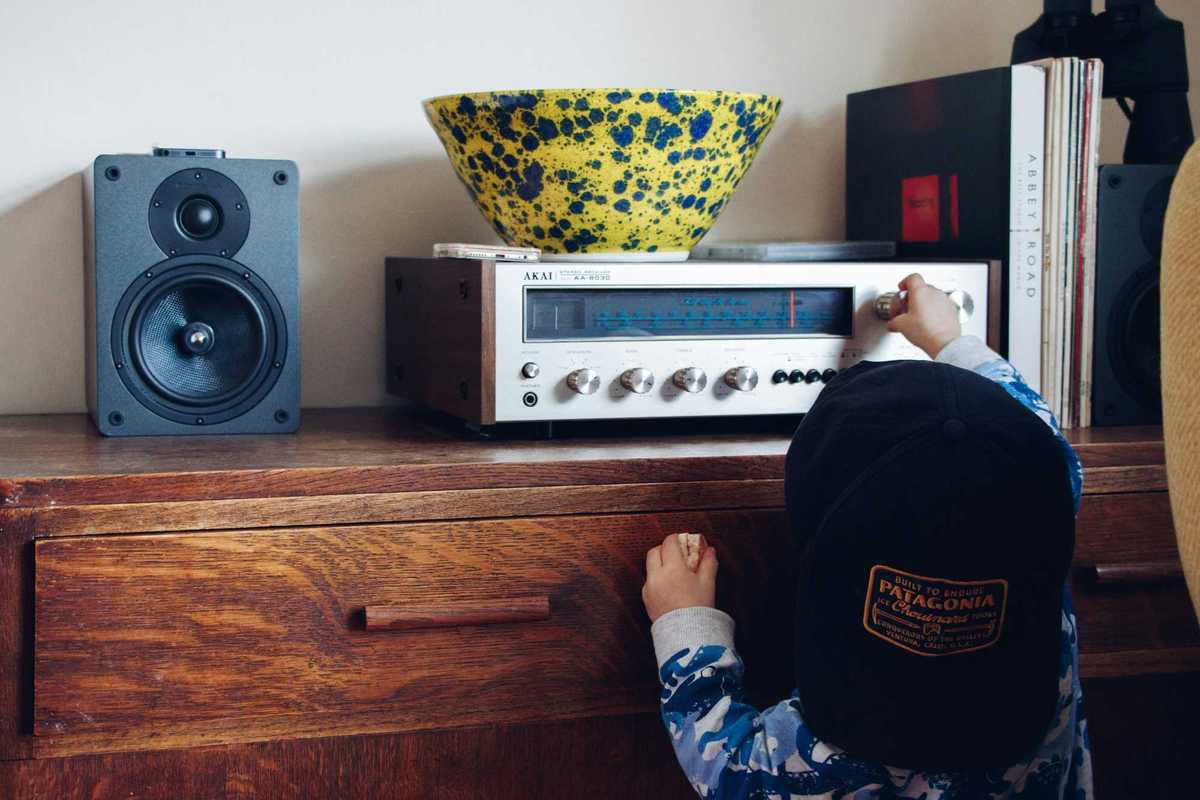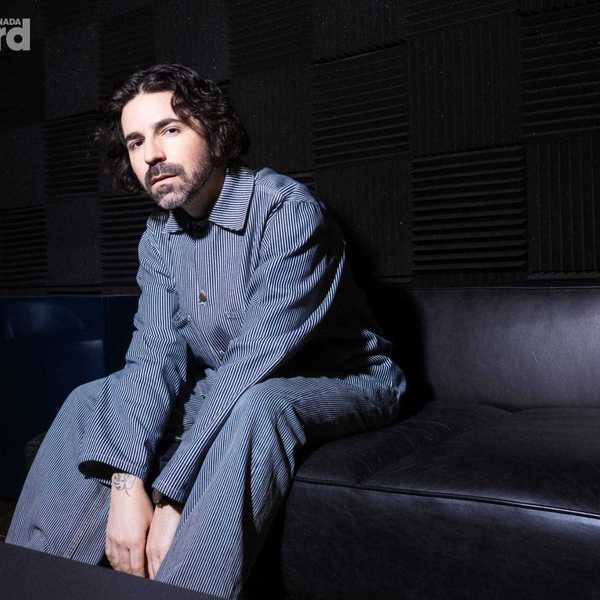Astroworld Victims Want Trial to Be Broadcast Live to the Public: ‘Transparency And Accountability’
Set to start next month, the trial will be the pivotal first clash in billion-dollar litigation over Travis Scott's deadly 2021 festival.

A visitor writes a note at a memorial outside of the canceled Astroworld festival at NRG Park on Nov. 7, 2021 in Houston.
Victims of the Astroworld music festival want their looming trial against Travis Scott, Live Nation and other organizers to be livestreamed to the public, citing a public demand for “transparency and accountability.”
After more than two years of litigation over the 2021 crowd crush at the Astroworld — a disaster that left 10 dead and hundreds injured — the first jury trial is set to kick off early next month. It will be a pivotal first test for hundreds of other lawsuits filed by alleged victims that claim the organizers were legally negligent in how they planned and operated the festival.
In a motion on Thursday (April 25), lawyers for the plaintiffs in the upcoming trial argued that it should be broadcast live on the internet, saying such a step was needed to “ensure that all those affected by the Astroworld tragedy can observe the proceedings and stay informed of the trial’s progress.”
“The devastating scale of the events at Astroworld, combined with the involvement of high-profile defendants, has generated significant national attention and a legitimate public demand for transparency and accountability,” the plaintiffs’ lawyers write. “By livestreaming the trial, the Court will demonstrate its commitment to open and accessible proceedings, fostering public trust and confidence in the judicial system’s handling of this consequential matter.”
A ruling opening up her courtroom to cameras would be a major shift for the judge overseeing the Astroworld litigation. Back in 2022, citing the risk that potential jurors might become biased, Judge Kristen Hawkins imposed an unusually strong gag order that has severely limited public knowledge about the status of the case.
Media outlets like ABC challenged Judge Hawkins’ gag order, arguing that it was depriving the public of information about important judicial proceedings over a newsworthy event. But a Texas appeals court upheld the media ban last year without explanation.
Hundreds of lawsuits have been filed over the deadly crowd crush during Scott’s Nov. 5, 2021, headlining set at Astroworld. The cases, collectively seeking billions in damages, claim that organizers bear legal responsibility for the disaster because of poor safety planning and failure to stop the show after problems had been reported.
The lawsuits have spent much of the last two years in discovery, as the two sides exchanged information and took depositions of key figures. But now the first trial in the massive litigation — over a wrongful death case filed by the family of Madison Dubiski, a 23-year-old who died at Astroworld — is set to start on May 6.
In seeking to have that trial aired live, attorneys for Dubiski’s family argued that it was “impractical” for everyone involved in the litigation to attend the proceedings physically: “There are hundreds of plaintiffs and their family members, numerous defendants, and a multitude of counsel to account for.”
But they also hinted that they think the judge might have doubts about broadcasting the trial. The recording would be “conducted unobtrusively, with minimal disruption to the trial process,” the plaintiffs’ lawyers said, and the judge will have the ability to “pause or terminate the broadcast if necessary to preserve order or to protect sensitive information.” And witnesses would be sequestered and required not to watch the stream “to safeguard the fairness and impartiality of the proceedings.”
The judge will presumably rule on the motion in the next week before the trial gets underway.

















